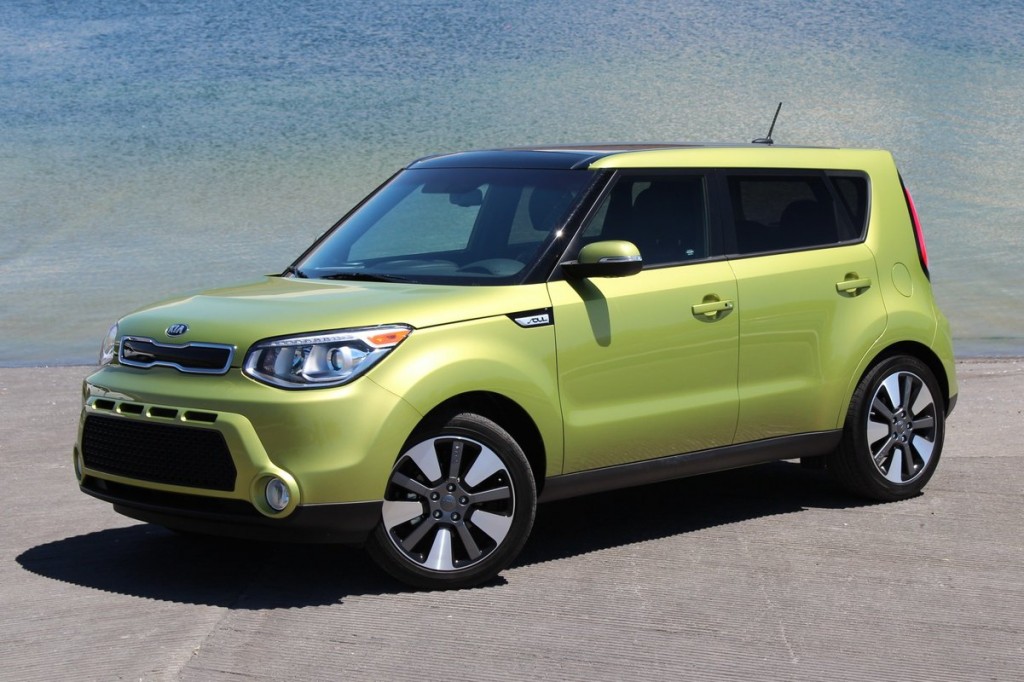
2014 Audi A6 TDI
In low-speed stop-and-go driving, however, even modern-day diesel engines are no revelation in efficiency, sipping away at their fuel at a less frugal rate. It's where we’ve noticed, for instance, that a Volkswagen Jetta Hybrid will surge ahead of a Jetta TDI in real-world fuel-efficiency, for example, even if the TDI is better in most real-world highway and combined conditions. And that’s where engine stop-start technology chimes in as an odd—but surprisingly effective—companion for diesels.
We haven’t, up until this year, seen start-top with a diesel engine in the U.S. market, but in the blink of a model year it's suddenly de rigueur.
A tipping point for the technology...if you're shopping luxury brands
The technology, already proven in Europe—and of course, in a different form, in many hybrid models—has reached a sort of tipping point, such that it isn’t just being cautiously introduced by a single automaker; nearly all of the new diesels offered by luxury brands will soon have stop-start, and every single diesel introduced this fall in a luxury vehicle has it. That includes the BMW 328d sport sedan, the Mercedes-Benz E250 Bluetec, and the new TDI versions of the Audi A6 and A8 sedans, A7 hatchback, and Q5 crossover.

2014 BMW 328d xDrive Sports Wagon
The Mercedes-Benz GLK250 Bluetec, which was introduced earlier this year with the same engine as the E250, doesn’t have the feature yet; but officials confirmed that it soon will.
Stop-start for diesels...Really?
While stopping and starting diesel engines repeatedly might seem counterintuitive to longtime diesel fans at first thought, it makes sense now. It didn’t always, acknowledged Bert Herring, general manager of product planning for Mercedes-Benz USA; but Herring points to major advances in electronic controls that help make sure that start-stop only operates when the engine is fully hot, and that it keeps the engine within an even narrower temperature window than with gasoline engines—hot enough for emissions catalysts to operate within their peak range.
What that means is that if you get a diesel vehicle with start-stop, you might not notice the feature working at all in cold winter weather; while out in a Southern California traffic jam, it might save you quite a bit of fuel.
Surprisingly smooth for new Mercedes-Benz diesel four

2014 Mercedes-Benz E250 BlueTec - First Drive, August 2013
True enough, in our recent drive of the E250, we noticed a surprisingly isolated vibration as the purring of the diesel four stopped and started at a stoplight.

2010 Porsche Panamera V6
Definitely some pushback to get overcome
The technology is already entering its second model year for some of BMW’s lineup—and its third for the 3-Series, which made its debut with the current-generation model. And while it’s saved fuel, BMW owners in particular haven’t been entirely in love with it.
After offering it in a number of gasoline models this past year, owners voiced a number of complaints about the system—specifically, that it was too rough and intrusive for a luxury car, and that they couldn’t set the feature to be disabled all the time. BMW last summer then moved to resolve that by allowing dealers to configure vehicles to “last user mode,” which remedies that, but in turn doesn’t save the fuel and emissions promised.
Still struggling to justify it on the mass market
A number of new vehicles are offering the technology at this point (it’s standard on the 2014 Chevrolet Malibu); yet at the same time, several automakers, including Mazda and Kia have backed off on earlier plans to install it. At issue, primarily, is these systems' negligible difference in official EPA ratings—because of the rather unrealistic driving loop that’s used to calculate these numbers.
And in a price-crunched market, product planners often end up choosing features that might be universally well-received, like heated seats or backup cameras, over the less straightforward benefits of stop-start.
Kia, for instance, has officially said several times that it would make its ISG stop-start system widely available in the U.S. (with real-world gains of as much as six percent in U.S.-style driving), but a lack of positive feedback from customers along with the EPA-rating issues has “put the feature back on the table,” as Orth Hedrick, product planning director for Kia Motors America, put it recently.

2014 Kia Soul - First Drive, August 2013
Do you think that engine stop-start is a good idea for diesels? Will it make them more or less attractive against hybrid models? Tell us in your comments below.
_________________________________________













